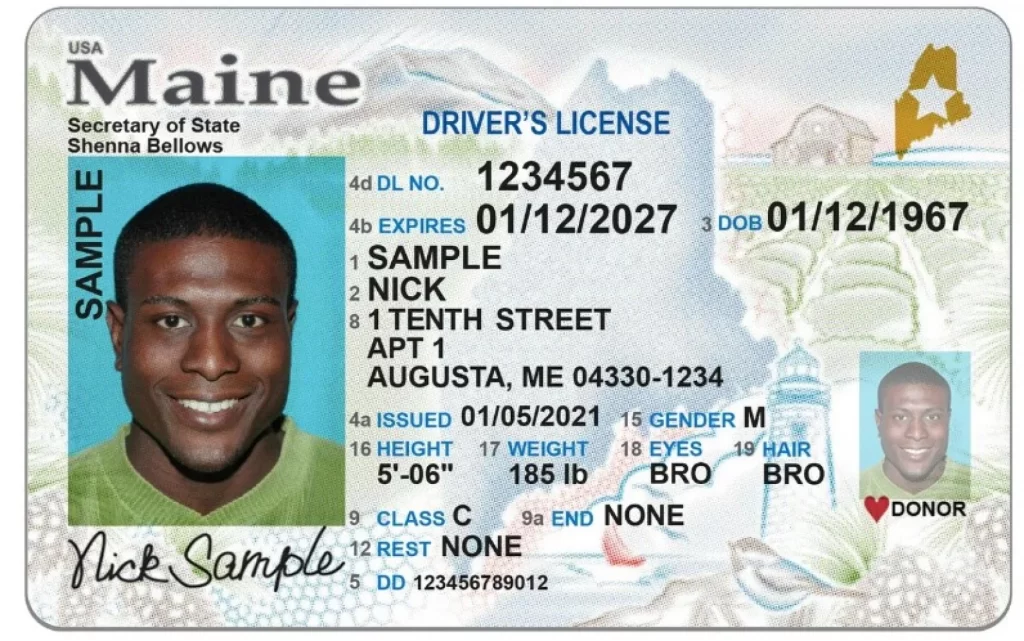Maine
ID Scanning Laws
In Maine, the law does not govern the act of businesses scanning IDs, but the retention of personal information derived from such scans is a matter of discretion for the business and can be subject to scrutiny.
Certain situations do necessitate merchants to log identity-related information, such as during the sale of scrap metal. In these instances, the practice of ID scanning can facilitate more efficient and accurate record-keeping.




Maine State Legislature
ID Scanning Resources
The Legal Framework
Maine ID Scanning Laws and Regulations
In the modern age, the use of technology to verify identity and age has become increasingly common. This is particularly true in the hospitality industry, where establishments such as hotels often need to confirm the identity of their guests. In Maine, businesses are allowed to scan IDs, but the storage of personal data is questionable and is a decision to be made by the business. There are some instances in which merchants are required to record information related to identity, such as the sale of scrap metal. ID scanning can improve the ease and accuracy of record keeping in these scenarios.
As of October 1, 2021, there is a statewide ban on public and government use (including law enforcement) of facial recognition technology in Maine. The law does not regulate the use of facial recognition technology by private businesses.
Detailed Analysis
ID Scanning in Maine
In Maine, the law does not specifically regulate a business’s practice of scanning IDs. However, the storage of personal data is a matter of concern and is a decision that each business must make individually. This means that while a hotel in Maine can scan a guest’s ID to verify their identity or age, the hotel must decide whether or not to retain the data obtained from the ID scan.
This decision should be made with consideration for privacy laws. As stated by Matt Dunlap, Secretary of State, “The law explicitly forbids copying a license which is essentially what that would be. This is something that the legislature struggled with a little bit because people make copies of licenses to close a mortgage, rent a car, etc. and they’ve been doing some work on that but the basic premise of the statute is to protect the privacy of the driver”.
Facial Recognition in Maine
As of October 1, 2021, there is a statewide ban on the public and government use of facial recognition technology in Maine, including by law enforcement. However, the law does not regulate the use of facial recognition technology by private businesses. This means that hotels in Maine can use facial recognition technology to verify the identity of their guests, provided they do not infringe on any privacy laws.
Affirmative Defense for ID Scanning
Maine does not offer a general affirmative defense for ID scanning. However, there may be limited access to affirmative defense for tobacco sales. According to Maine Title 22, §1555-B, it is an affirmative defense to prosecution for a violation of retail sales of tobacco products if the defendant sold, furnished, gave away, or offered to sell, furnish, or give away a tobacco product in reasonable reliance upon a fraudulent proof of age presented by the purchaser.
Records of Purchases by Scrap Metal Processors
According to Maine Title 30-A, §3772, scrap metal processors are required to maintain records of each scrap metal purchase transaction. These records must include the name, address, and gender of the seller. The scrap metal processor is required to require the seller to provide proof of identification with a driver’s license, military identification card, passport, or other form of government-issued photo identification. The scrap metal processor must photocopy the form of photo identification presented and record the distinct identifying number of that photo identification.
Please note that this information is intended to provide a general overview and does not constitute legal advice. Always consult with a legal professional for advice specific to your situation
Maine Anti-Trafficking Network
Our Fight Against Human Trafficking



Knowledge Base
Frequently Asked Questions
Yes, hotels in Maine are allowed to scan your ID to verify your identity or age.
The law in Maine does not specifically regulate the storage of data obtained from an ID scan. However, businesses are advised to consider privacy laws when deciding whether or not to store such data.
Yes, private businesses in Maine, including hotels, are allowed to use facial recognition technology to verify identity.
As of October 1, 2021, there is a statewide ban on the use of facial recognition technology by law enforcement in Maine.
Maine does not offer a general affirmative defense for ID scanning. However, there may be limited access to affirmative defense for tobacco sales.
Scrap metal processors in Maine are required to record the name, address, and gender of the seller from an ID scan. They must also photocopy the form of photo identification presented and record the distinct identifying number of that photo identification.
